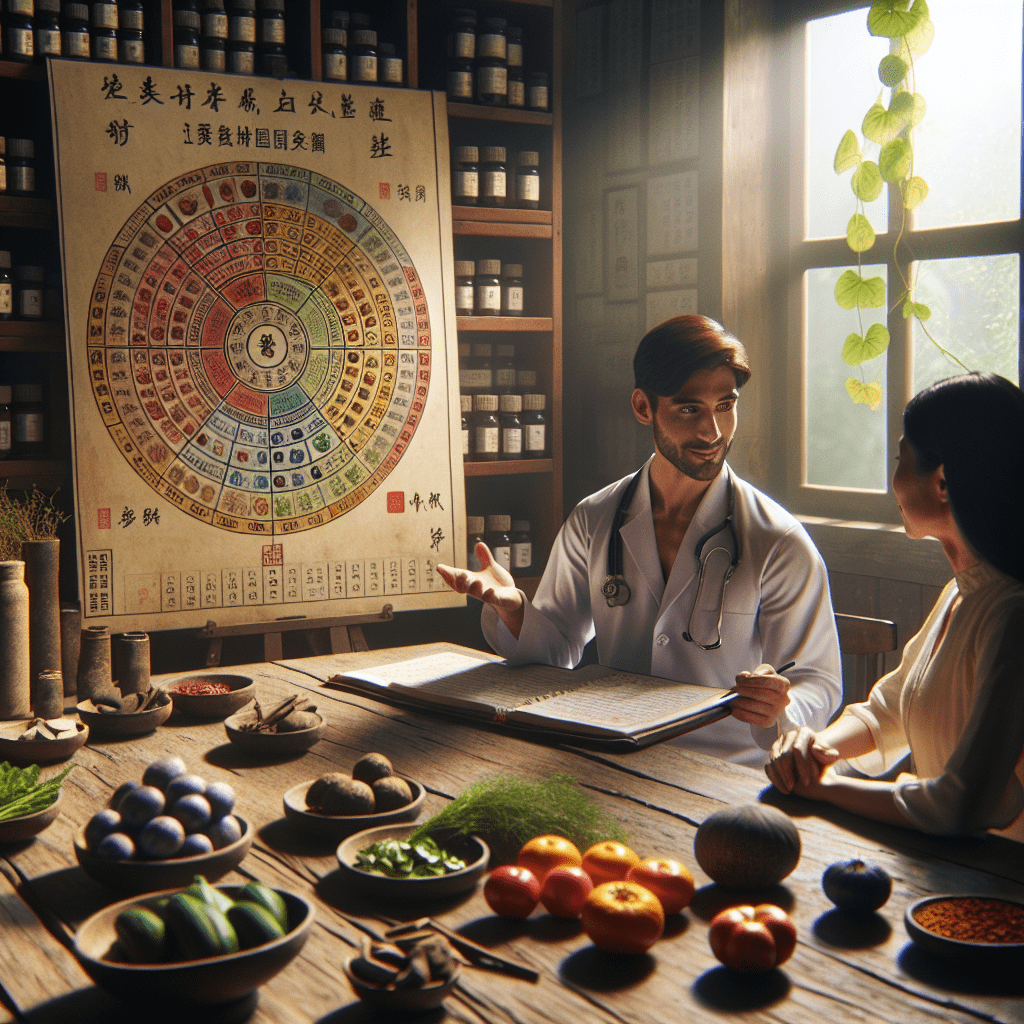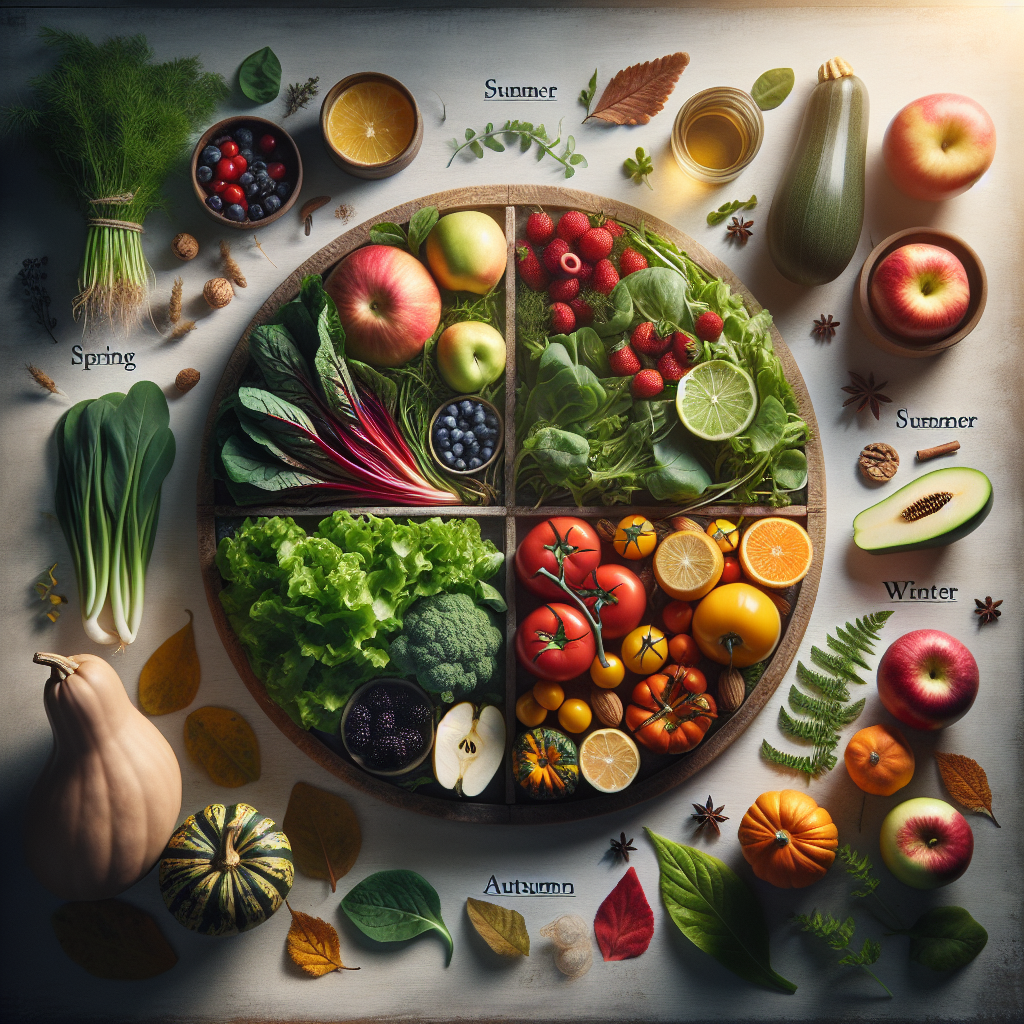Have you ever noticed how strawberries taste incredibly sweet and juicy in summer but seem bland and watery in winter? Or how that bowl of hot pumpkin soup brings comfort in autumn but feels out of place on a sweltering August day? These aren’t coincidences – they’re nature’s way of telling us something our ancestors understood deeply: eating seasonally matters.
Seasonal eating isn’t just a trendy food movement or a chef’s preference. It’s actually one of the oldest dietary practices in human history, deeply rooted in Eastern healing traditions and now increasingly validated by modern science. At its core, seasonal eating means consuming foods that are naturally harvested at their peak during specific times of the year.
For thousands of years, traditional Eastern medicine systems have emphasized aligning our diets with nature’s rhythms. Now, contemporary research is catching up, revealing why this ancient practice is so relevant in today’s fast-paced world where strawberries and cucumbers are available year-round at the supermarket.
The Nutritional Powerhouse of Seasonal Foods
When fruits and vegetables are allowed to grow and ripen according to their natural timeline, something magical happens. They develop their full nutritional potential – something that simply can’t be replicated in off-season produce forced to grow in artificial conditions or shipped from halfway around the world.
Seasonal produce harvested at peak ripeness contains significantly higher levels of vitamins, minerals, and antioxidants. A sun-ripened summer tomato from your local farmer’s market isn’t just tastier than its pale winter counterpart – it actually contains more nutrients. Studies have shown that freshly harvested seasonal produce can have up to three times more nutrients than out-of-season alternatives that may have been stored for months or picked before ripening.
Your digestive system also benefits tremendously from seasonal eating. Our bodies are naturally attuned to process certain foods during specific times of the year. For instance, the cooling cucumbers and watermelons of summer help us stay hydrated when temperatures rise, while hearty root vegetables provide the extra calories and nutrients we need during colder months.
“The nutritional advantages of in-season produce are that it’s fresher, and the nutrients that the produce developed are going to be at their peak,” explains many nutritionists. The shorter the time between harvest and your plate, the more nutritional value you receive.
Perhaps most fascinating is how seasonal eating supports our gut microbiome – that community of trillions of beneficial bacteria that influence everything from digestion to immune function and even mood. Fresh, local produce carries environmental microbes that help diversify and strengthen the gut microbiome, acting almost like a natural probiotic. When we eat with the seasons, we’re essentially feeding our gut bacteria the diverse diet they need to thrive.
Traditional Chinese Medicine: Eating with Nature’s Cycles
In Traditional Chinese Medicine (TCM), one of the world’s oldest healing systems, eating seasonally isn’t just beneficial – it’s essential for maintaining health and preventing disease. According to TCM, each season correlates with specific organs and energy systems in the body, requiring particular foods to maintain balance.
Spring in TCM is associated with the liver and gallbladder. As nature awakens from winter dormancy, TCM recommends eating light, fresh foods that encourage renewal and support these organs. Leafy greens like spinach, leaf mustard, and cilantro help cleanse the body after winter’s heavier foods. Young plants like bamboo shoots and spring onions are particularly beneficial during this season of growth and renewal.
Summer correlates with the heart and small intestine in TCM. This is when yang energy (heat) is at its peak, and the body needs cooling foods to maintain balance. Watermelon, cucumber, and other hydrating fruits and vegetables help clear excess heat and generate fluids. A light watermelon and mint salad isn’t just refreshing – it’s medicine according to Eastern wisdom.
“In summer, emphasize cooling foods to counteract the heat,” advises TCM practitioners. “It’s easy to overdo it socially or physically, so finding time to slow down and stay hydrated is crucial.”
As we transition to autumn, TCM focuses on the lungs and large intestine. This is a time to prepare the body for the coming cold by eating foods that boost immunity and moisten the lungs. Pears, apples, and root vegetables come into season now for good reason – they provide exactly what our bodies need during this transitional time.
Winter in TCM is associated with the kidneys and bladder, our deepest energy reserves. This is when we should consume warming foods like slow-cooked soups, stews, and root vegetables that preserve kidney energy. TCM recommends “sleeping more, eating hearty, warming seasonal foods and avoiding excessive sweating or exercising” during winter.
What’s remarkable is how these ancient recommendations align with what grows naturally during each season. Nature provides precisely what our bodies need, when we need it – a concept that’s both elegantly simple and profoundly wise.
Environmental Benefits: When Your Plate Protects the Planet
Beyond personal health, eating seasonally has tremendous environmental benefits that extend to the health of our planet. Every time you choose locally grown seasonal produce, you’re casting a vote for sustainability.
When food doesn’t need to fly thousands of miles to reach your plate, the carbon footprint of your meal shrinks dramatically. The resources required to grow, transport, and store off-season foods create substantial environmental costs. Consider this: one kilogram of apples imported from New Zealand has a carbon footprint approximately ten times larger than locally grown seasonal apples.
Seasonal eating also reduces the need for energy-intensive greenhouse growing methods, excessive packaging, and refrigeration required for long-distance shipping. These processes not only consume fossil fuels but also often involve chemical preservatives to extend shelf life.
By choosing what’s naturally abundant in your region, you’re also supporting local farms and economies. Small-scale farmers who grow diverse seasonal crops typically use more sustainable farming practices that protect soil health and biodiversity – creating a virtuous cycle that benefits everyone.
“Eating with the seasons helps reduce the environmental impact of our food choices,” environmental experts point out. “When we opt for locally grown, seasonal produce, we support agricultural practices that work with nature rather than against it.”
The environmental case for seasonal eating becomes even more compelling when we consider water usage. Growing crops in their natural season typically requires less irrigation, as they can rely more on natural rainfall patterns. In contrast, producing out-of-season foods often demands excessive water usage in climates where that crop wouldn’t naturally thrive.
Mindfulness on Your Plate: The Forgotten Connection
There’s something deeply satisfying about biting into the first crisp apple of fall or savoring the first tender asparagus spear of spring. Eating seasonally connects us to the natural world in a way that our modern food system has largely erased.
When we follow nature’s calendar in our kitchens, we cultivate mindfulness around food. We begin to notice subtleties in flavors, appreciate the fleeting nature of certain foods, and develop patience – waiting for that perfect summer peach becomes an exercise in mindfulness itself.
Seasonal eating also reintroduces the element of anticipation to our meals. In a world where instant gratification is the norm, there’s something wonderfully grounding about looking forward to foods that aren’t available year-round. The first strawberries of summer taste all the sweeter when you’ve waited for them.
This mindful approach to eating helps us appreciate food as more than mere fuel. It becomes a way to connect with our surroundings, understand natural cycles, and develop a deeper appreciation for what nourishes us. In Eastern philosophies, this connection between food, nature, and well-being is foundational to health.
Science Validates Ancient Wisdom
What’s particularly fascinating is how modern scientific research continues to validate what Eastern healing traditions have taught for millennia. Studies now confirm that the nutritional content of fruits and vegetables is indeed highest when they’re harvested in season.
Research published in nutritional journals demonstrates that seasonal foods help the body adapt to changing weather conditions – hydrating during summer or providing extra calories and vitamins during winter. These findings echo what TCM has long taught about eating in harmony with the seasons.
Science has also begun to explore the relationship between seasonal eating and our circadian rhythms – the internal biological clocks that regulate numerous bodily functions. Preliminary research suggests that consuming foods when they naturally grow may help support these intricate timing systems within our bodies.
The gut microbiome research mentioned earlier provides another scientific validation of seasonal eating. Our gut bacteria thrive on diversity, and the changing menu of seasonal foods provides exactly that – a rotating array of nutrients, fibers, and natural compounds that keep our microbiome robust and varied.
Embracing Seasonal Eating in Modern Life
Incorporating seasonal eating into your lifestyle doesn’t require moving to a farm or completely overhauling your diet. Even small steps toward eating more seasonally can yield significant benefits for your health, the environment, and your connection to food.
Start by familiarizing yourself with what grows naturally in your region during different times of the year. Farmers’ markets are excellent places to discover what’s truly in season locally. When you shop at supermarkets, look for produce that’s both abundant and affordably priced – these are often clues that an item is in season.
Planning meals around seasonal ingredients doesn’t have to be complicated. In spring, enjoy abundant leafy greens and early vegetables. Summer calls for fresh berries, tomatoes, and cooling cucumbers. Fall brings hearty squashes, apples, and root vegetables, while winter is perfect for citrus fruits, hardy greens like kale, and stored root vegetables.
Remember that seasonal eating isn’t about perfectionism. In today’s world, enjoying some out-of-season foods is practically inevitable. The goal is simply to shift more of your diet toward what’s naturally abundant at any given time.
The HerbalsZen Approach: Ancient Wisdom Meets Modern Technology
At HerbalsZen, the practice of seasonal eating aligns perfectly with our core philosophy of blending ancient Eastern wisdom with modern innovation. Our EASTCHI AI platform integrates this time-tested knowledge of seasonal nutrition with cutting-edge artificial intelligence to create truly personalized health recommendations.
EASTCHI AI analyzes your constitutional type through the lens of Five Element Theory, a cornerstone of Eastern medicine that connects different body systems to seasons, elements, and foods. This allows us to provide seasonal dietary guidance tailored specifically to your unique needs.
By embracing the Eastern concept of food as medicine and combining it with AI’s ability to process complex individual health data, EASTCHI AI delivers nutrition plans that evolve with the seasons and your changing health needs.
Whether you’re looking to improve digestion, boost energy, or simply establish a more balanced relationship with food, the ancient practice of seasonal eating offers a pathway that’s been refined over thousands of years and is increasingly supported by modern science.
As we navigate the complexities of contemporary life, this timeless wisdom reminds us that sometimes the most advanced health technology is nature itself – providing exactly what we need, exactly when we need it. By aligning our plates with nature’s cycles, we honor both ancient wisdom and modern science while nurturing our bodies, minds, and the planet we call home.
Why is eating seasonal important? Because it connects us to a wisdom that transcends time – a harmonious relationship with nature that supports optimal health in every season of life.



